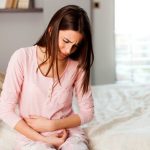What is a pandemic?
A pandemic is the worldwide spread of a new disease. Viral respiratory diseases, such as those caused by a new influenza virus or the coronavirus COVID-19, are the most likely to turn into a pandemic.
A pandemic is not the same as an epidemic. In an epidemic, many more cases of a health condition occur than would normally develop in a community or region, but the condition does not spread further.
In the past, there have been numerous influenza pandemics. Pandemic influenzas often have their origin in animal influenza viruses and are not the same as seasonal influenza. Few people, if any, will have immunity against a pandemic influenza virus — even if they have had seasonal flu or a seasonal flu vaccination.
How is a pandemic declared?
The World Health Organization (WHO) is responsible for declaring when a global pandemic is occurring. The WHO does this by monitoring outbreaks of a disease and taking advice from international health experts. Australia and other countries are, however, likely to take steps to reduce the impact of an pandemic before the WHO makes a formal declaration.
How does Australia respond to influenza pandemics?
The Australian Government has in place a health management plan to minimise the impact of an influenza pandemic on Australians’ health and the healthcare system.
To control infection, health authorities may provide information about the importance of good hand and cough hygiene — hand washing and coughing or sneezing into the elbow — to minimise the chance of transmitting the virus. They may also issue personal protective equipment (PPE), such as masks, to healthcare providers and workers who come into close contact with infected individuals.
Travellers — aboard flights or ships — may receive information about the pandemic, while other sources of information, such as the Smartraveller website may advise on high-risk destinations. At entry points into Australia, travellers may find healthcare staff doing screening checks, such as checking temperatures with hand-held scanners.
State education departments may decide to close schools or provide remote learning. Businesses may be encouraged to let staff work from home and mass gatherings may be cancelled. In some cases, people confirmed with having the infection — and people who have come into contact with confirmed cases — may be asked to self-isolate.
Commonwealth biosecurity laws and state and territory public health and emergency response laws allow these measures to be enforced. However, generally people are asked to comply with measures voluntarily.
Healthcare is managed by state and territory authorities so different states may have different policies, such as those regarding school closures.
How should I prepare for a possible pandemic?
- Discuss your preparations with family and friends and identify people you could turn to for help — as well as people who might need your help.
- List important phone numbers, home and email addresses (including your family doctor).
- Develop a food and supplies list since supplies can be disrupted during a pandemic. It may be useful for households to have a small stock of non-perishable groceries just in case the household is asked to self-isolate — including supplies for babies and pets. Buy these extras gradually — there is no need to bulk buy (or ‘stockpile’) items such as toilet paper or paracetamol.
- Make sure you also have enough prescription and other medicines for 14 days. Talk to your doctor or pharmacist if you have any questions.
- Plan for school and childcare centre closures by having books, school work and recreational materials at home. Children may feel stressed or anxious during a pandemic, but there are things you can do to help them cope.
- Consider any practical arrangements, such as internet access, that you might need to make if you have to work from home at short notice.
How do I self-isolate during a pandemic?
You may need to isolate yourself at home during a pandemic if you are experiencing symptoms, or even if you have no symptoms but are confirmed to be infected.
If you need to isolate yourself, you should:
- Stay home for the recommended timeframe or as advised by your doctor, except to get medical care. Do not go to work, school, or visit public areas, and do not use public transport or taxis.
- Call before visiting the doctor and tell them you may have been exposed to the virus or you are being tested for it.
- Remain separate from other people in your home; stay in a different room and use a separate bathroom, if available.
- Make sure shared spaces have good air flow — for example, weather permitting, open a window.
- Keep away from elderly people and those with compromised immune systems or chronic health conditions, such as heart, lung or kidney conditions, and diabetes. Restrict other visitors who do not need to be in the home.
- Wear a surgical face mask if you need to be around other people. If you cannot wear a mask, then the people around you should wear a surgical face mask.
- Cough or sneeze into your elbow. Throw used tissues in a lined bin, and immediately wash your hands with soap and water for at least 20 seconds.
- Use an alcohol-based hand sanitiser if soap and water are not available and if your hands are not visibly dirty. Avoid touching eyes, nose and mouth with unwashed hands.
- Do not share dishes, cups, eating utensils, towels, bedding or other items. Wash these items thoroughly with soap and water after use.
Follow this link for information on caring for someone who needs to be isolated at home during a pandemic, such as the COVID-19 pandemic.
If your condition worsens while in isolation, seek prompt medical attention. You may leave home, but make sure you call before visiting your doctor or hospital emergency department. Some doctors, such as GPs, may offer a phone or video appointment instead of an in-person appointment. If you have recently travelled, make sure to tell your doctor.
What is ‘physical distancing’?
Physical distancing helps prevent viruses from spreading. You practise some forms of physical distancing yourself, such as choosing where you stand on the bus. Other physical distancing measures (such as the cancellation of large sporting events) may be enforced by government or private groups and organisations.
Physical distancing practices include:
- staying 1.5 metres away from others when in public
- avoiding crowds and mass gatherings where it is hard to stay 1.5m from others
- avoiding small gatherings in enclosed spaces, such as parties or family celebrations
- avoiding shaking hands, hugging or kissing
- avoiding visiting vulnerable people, such as those in aged-care facilities or hospitals, infants, or people with weakened immune systems



